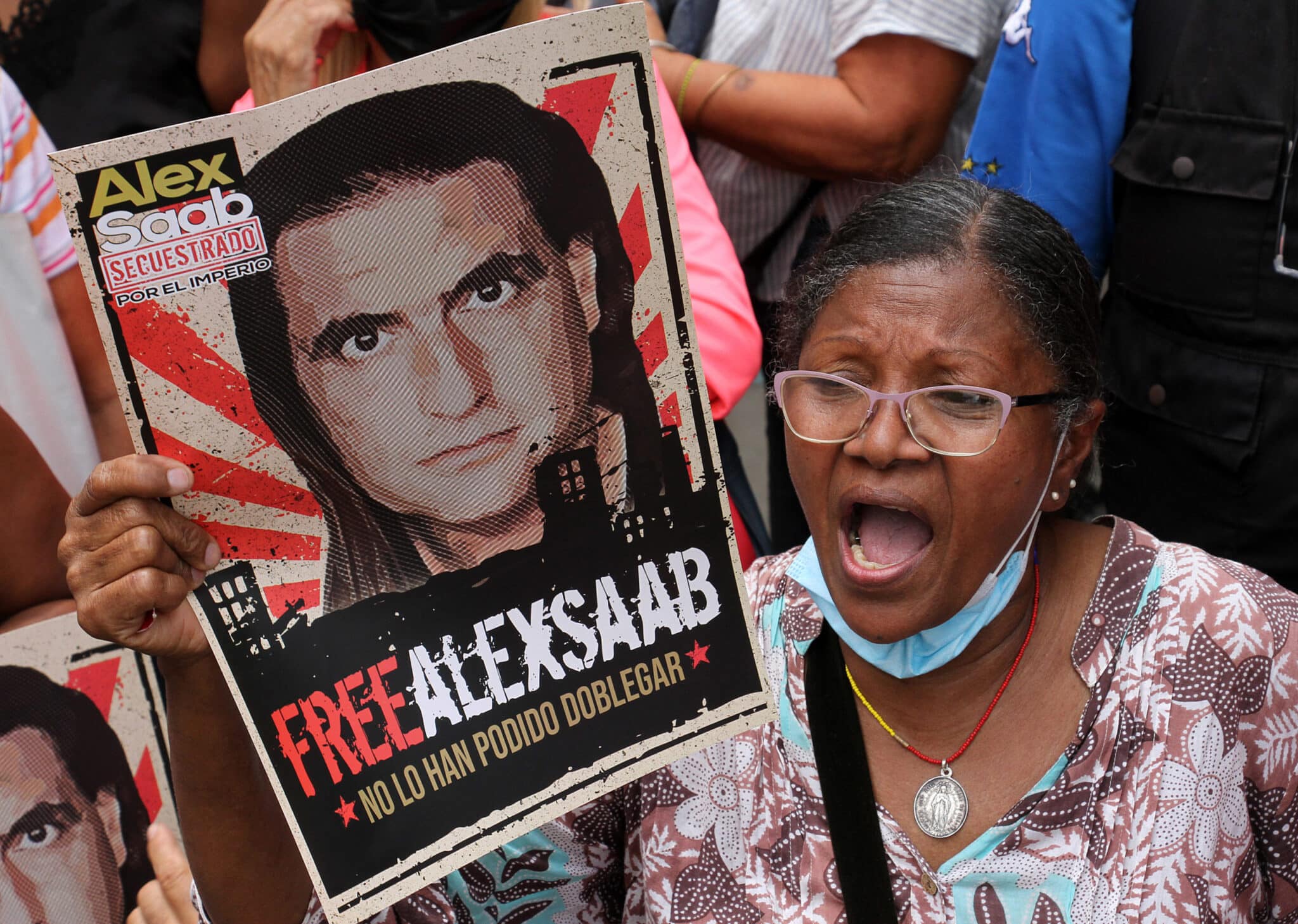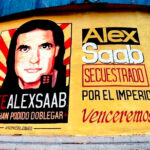
Venezuelan woman demanding in a street protest for the freedom of ambassador Alex Saab while holding a banner with a photo of the diplomat that reads: "Alex Saab kidnapped by the Empire, #FreeAlexSaab, they haven't been able to bend him." File photo.











You must be logged in to post a comment.